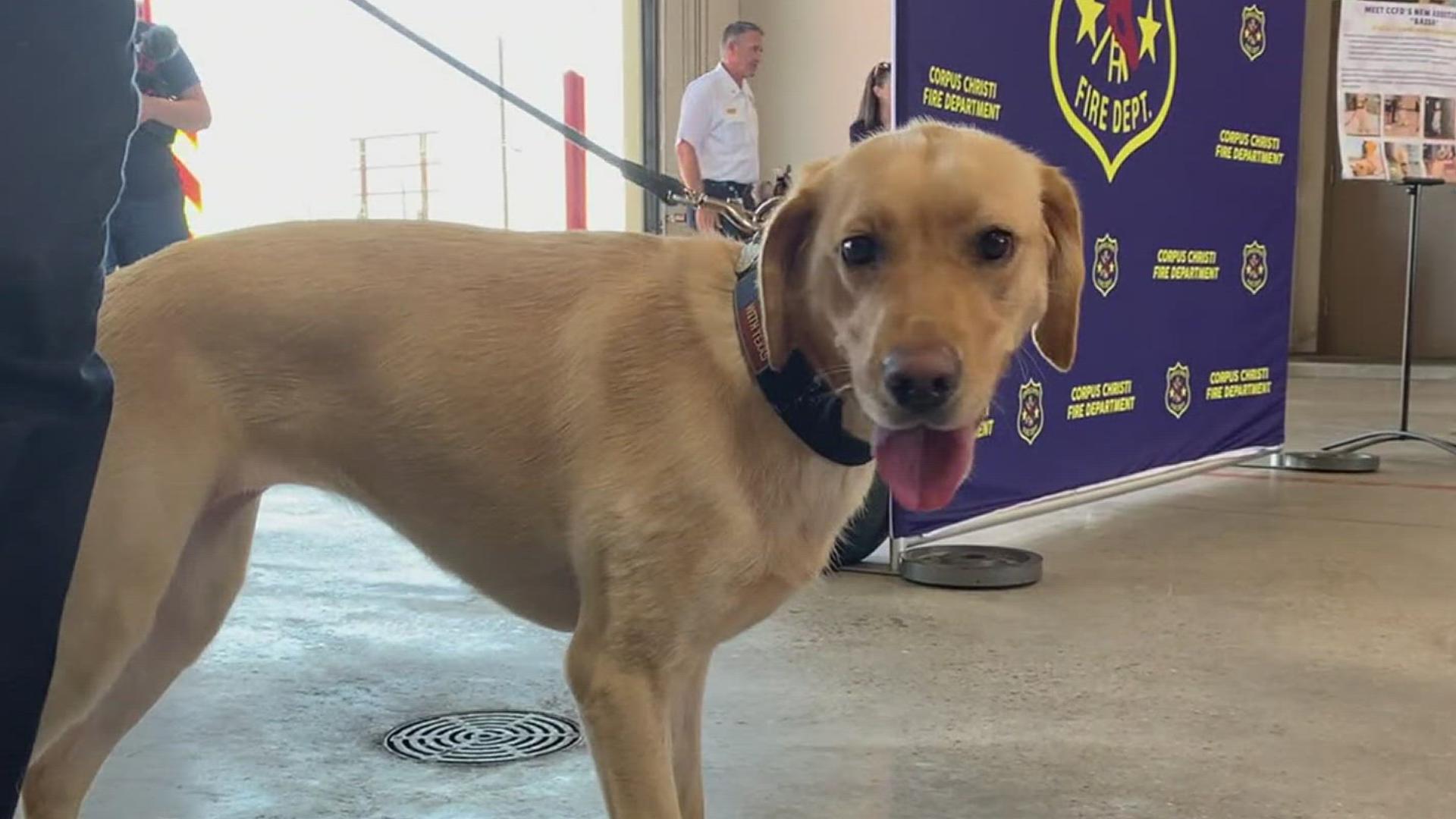CORPUS CHRISTI, Texas — One of Corpus Christi Fire Department's newest arson investigators is keeping busy.
Their arson dog started working for CCFD last year and has already assisted with multiple cases. Fire officials said the dog works to detect 'hits.' That is when it picks up the scent of flammable material that could be used to start a fire.
The dog's name is Baisa and she always stays with her trainer, even at home. According to CCFD, 35 percent of fires in fiscal year 2024 so far were suspected to be arson or incendiary.
They explained how the arson dog can help them in those investigations.
"They're trained to smell flammable liquids," CCFD Fire Marshal Randy Paige said. "So, they can alert to a spot that, a lot more quickly than we can dig places out or alert to a spot that, you know, kind of, narrows it down."
Paige said their arson dog is a tool that lets them get into spaces they can not always reach when investigating a scene. Anytime the dog's handler goes out, she is right there alongside him.
"The handler gets to learn the dog and can tell when the dog is, you know, really hitting on something versus something that may be nonconsequential," Paige said.
When at the scene, CCFD Deputy Fire Chief Doug Matthijetz said the arson dog can help find the cause, tracing back to a specific spot. From there, the evidence gets shipped to a lab for closer examination.
"You might not necessarily know, especially in a fire scene when everything's a mess, you know, trying to figure out where that gas is located," Matthijetz said. "Well, that dog helps pinpoint, 'oh, it's right here on this piece of wood or this carpet.'"
He said the arson dog trains twice a day and, like most dogs, gets treats as a reward. Even when the dog gets a hit, he adds that CCFD will still do a full investigation at a scene since there still could be flammable liquid that did not cause the fire.
"They might hit on that, but it is not related to the actual fire," Matthijetz said. "You have to look at the whole picture and do the full investigation."
Before CCFD had the arson dog, they had to ask the state for one when they needed it. Paige said that could take a week or two, so having their own now to send to a scene helps. He said the dog can also be used by other departments in the region if they need it, too.

